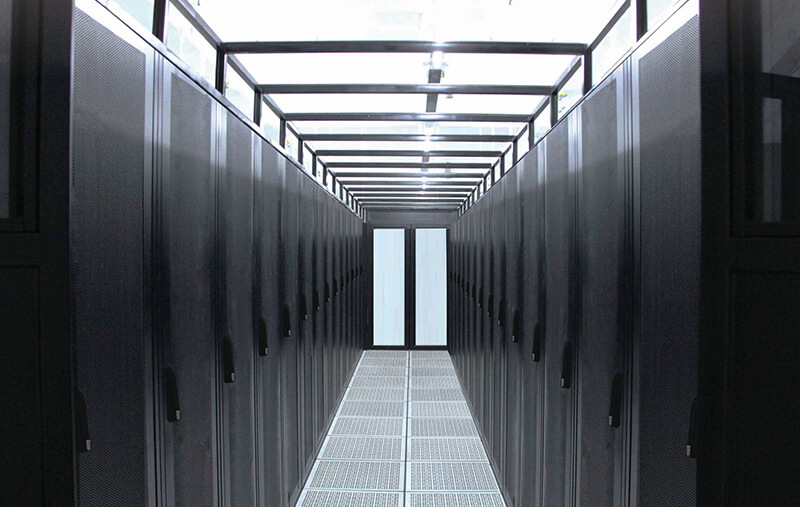As we enter the competitive economy of the world, we witness business priorities changing every day. Well, that could be a result of how companies wish to overpower their contemporaries in the market. After assessing each and every aspect of their competitors, business owners ensure to deliver services that make them unique in the market.
But to reach such concrete results, they’ll need every tool by their side. They need to make sure that the right technology is put to use to secure their data efficiently. After all, data is essential for any organization and its continued success.
So, it’s not just the strategies or their outcome that organizations need to secure. Data on their employees and work completed by them also needs to be stored safely. Therefore, today we see an increased need for storage among businesses that is hard to keep up.
Although, a good solution to this scenario is to add a server to your business. It can help any business become safer, secure, and more productive. Other than that, a server installation can:
- Boost your computer and data protection as regular backup of everyday data through all the systems connected to the server helps you to not lose any information ever.
- Help you provide your team more flexibility and freedom as they get access to work resources even if they are not in the office.
However, a question keeps on nagging business owners when planning to invest in servers. Let’s address it first before getting on to choosing the right server for your business.
Does My Business Needs Server Installation?
Servers are seen to be associated with corporations and enterprise level organizations. In fact, it is this association that creates a false notion among small business owners that they do not require a server at their organization. But this is where they need to look into the different aspects of a server and how it can prove to be beneficial for their workspace.
Both small and medium-sized business owners need to understand that data security is what servers provide. Their integration to the business will not only help to do that but also help employees be in the office even if they aren’t. Solving not just these but various other purposes for businesses across the globe makes server installation a crucial step.
To understand this, the size of the business does not matter when it comes to servers. It is important to overcome the false notion that they can only be used at corporate level. After all, data security should be the top priority for any business.
Therefore, server installation is an integral part of any business. Once you reach this decision, it is time you think about the various aspects that help you choose the right server for your business.
How to Choose the Right Server for Your Business
Before jumping on to the conclusion, it is essential you take into account some questions that will prove beneficial towards making a decisive decision on which server to buy. You need to confirm the following:
- Are you planning to invest in a server for file sharing purpose?
- Do you plan to use the server for emailing purpose?
- If you add the server to the organization, does your workforce gets to connect with it remotely?
- Do you plan to install server for data backup purposes?
- Have you checked whether your workspace has enough area to accommodate the server?
If you can answer these questions, it’ll be much easier for you to choose and integrate a server hassle-free. Other than these, you should also look at the following steps to make sure that you are investing in the right server for your business.
Cloud-Based Or Physical Server?
The first thing you should consider is whether you require a physical or cloud-based server for your organization. A physical server will be placed in-house while you access the other through cloud.
With cloud-based server, you have the opportunity to save in terms of budget. Except, the monthly expense to maintain this type of server might get costlier in comparison to in-house server placement.
As for physical server, it comes with various opportunities that allow organizations to reap benefit from easily. You get to have access and control over the hardware. In fact, you also get to customize extensively the applications that are running over it. And, what’s more? Your IT team gets access to the server 24/7 if anything needs changes or reconfiguration.
Even though cloud-based servers are the new technology and are said to replace the physical servers in another 3-4 years, it does not automatically imply that they are right or match your business needs. You could choose either type that fits your data security goals effectively.
Types of Physical Servers
If you plan to integrate a physical server at your workspace, then you need to decide which type will be added in the first place. There are three types of physical servers that you should know about. Each type of physical server indicates the needs for different company size. Let’s know them in detail below.
Tower Server
Tower servers are seen to be powerful in nature for those running a small business. This server can fulfill the needs of upto 15 employees at one time. What makes this a great investment for small business owners is its affordability. Also, it does not require separate cooling options.
These powerful tower server are also scalable. In short, they can last long for any small business easily. Tower servers are expandable and their high-end models can also be used for support visualization.
Rack Servers
As your small business starts to grow, your server needs are going to change. You will require a more powerful server that can take secure data for more employees. Therefore, upgrading to rack servers can be of great option for your business. And although these servers do not take much space at a workplace, they certainly need a separate cooling system to avoid any heating issues.
Another thing that business owners should know of is that rack servers are seen to be a prominent option in the market. In fact, many organizations prefer to integrate its use at their workspace. So in case, you plan to install a rack server at your office, it is important that you chose the best rack manufacturer that focuses on providing quality and helps you store the servers in place.
To chose the best rack manufacturer you can’t just contact any manufacturer in market. Always see what reputation do they hold in market and how many years have they spent in the rack manufacturing industry.
Blade Servers
In case you own an enterprise level organization and have more data security requirements, then blade servers are the best option. Unlike rack servers, they take up a lot of space at workspace and more cooling capacity, making them an expensive deal for sure.
In the End…
Now that you the know the basics of server and how to choose one for your business, it will be a lot easier for your business to secure the data at the organization efficiently. But remember when planning to invest in a server, you follow the checklist given below.
- Know what your company needs to run on the server. While doing so, also understand the processing power, memory and storage needs of your organization.
- Understand how much is the server need at your company likely to grow in the coming years. In case you know that the organization is going to be double of what it is today, then you need to invest in options like rack or blade servers.
- In case something goes wrong with the server, you need to come up with a strategy that keeps it going at all times. Your servers should have built in redundancy too.
Once you are through with this checklist, it will be easier for you to choose components or even select premade server that matches the needs of your business.

